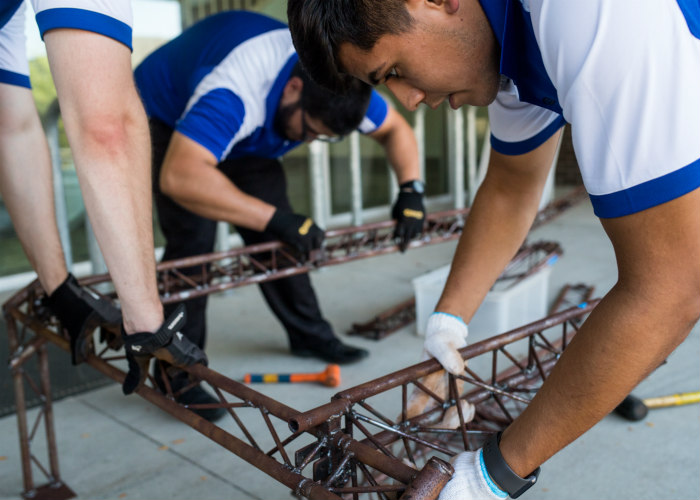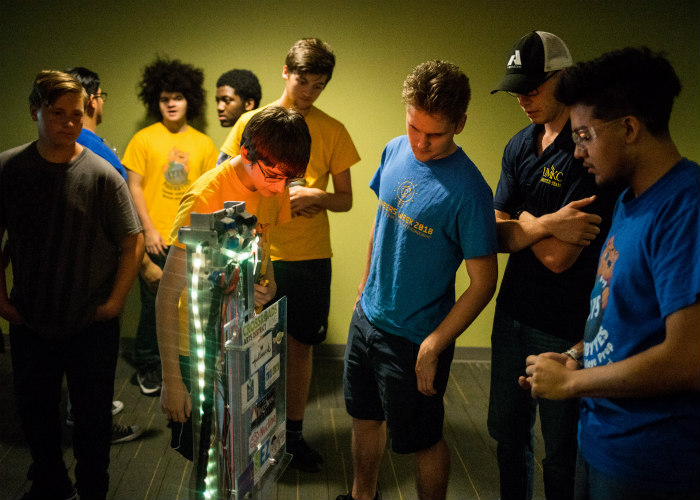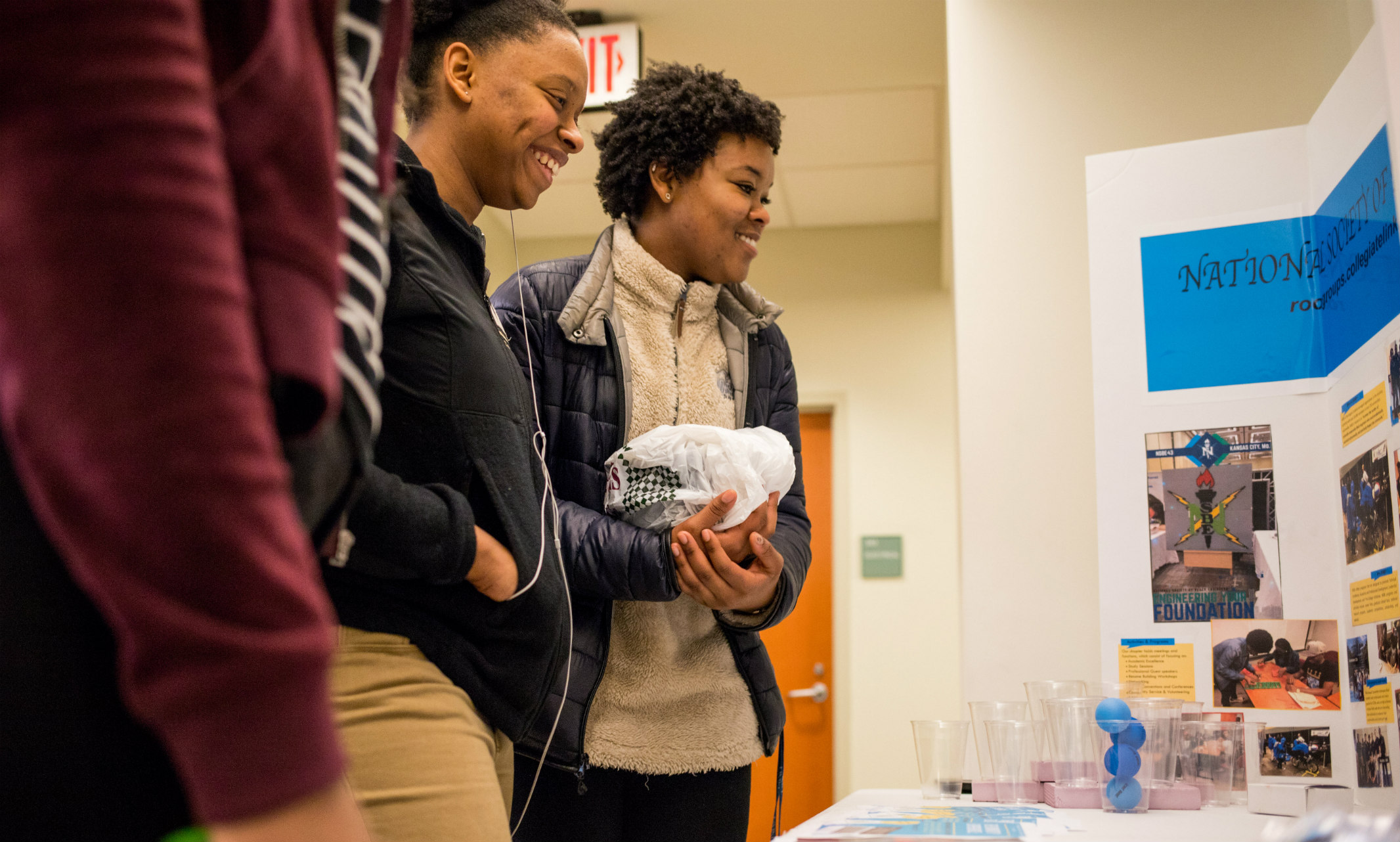On average, more than 80% of civil and mechanical engineering students at UMKC attend school while working. While that doesn’t seem so odd given the ever-increasing cost of higher education, trying to work and make ends meet can often stifle academic excellence.
A team of faculty from the Schools of Computing and Engineering, College of Arts and Sciences, and School of Education, led by Darran Cairns, Ph.D., School of Computing and Engineering director of program operations, recently received a $1 million grant from the National Science Foundation to break this cycle and increase bachelor’s-degree completion rates among engineering transfer students.
Through a new program partnership with Metropolitan Community College, transfer students studying civil and mechanical engineering can follow an enrollment pathway into the School of Computing and Engineering and — rather than having to worry about a full-time job — receive a stipend to cover their expenses while working on undergraduate research and gaining more experience in their field of study.

The team, which includes Michelle Maher, Ph.D., chair of educational leadership, policy and foundations at the School of Education and Jacob Marszalek, Ph.D., associate professor of psychology and research fellow in the UMKC Urban Education Research Center, worked collaboratively to design a program that would have maximum impact for the students it aims to serve – primarily students from disadvantaged backgrounds.
“We wanted to develop a holistic approach to create a culture of openness, curiosity and collaboration,” Cairns said.
“Transfer students have a harder time fitting in because they're not freshmen and they also didn't come in with their peers, so they don't always feel empowered to get involved and lead.”
This new program will work to change that narrative by helping students free up more time to get involved in campus life and offering both peer and professional mentorship to get them through to graduation and into the workforce.
“We’re paying students to get richer experiences.”
Of the $1 million grant, the majority will go toward student scholarships and provide students opportunities to perform research focused on improving urban infrastructure. The team is working with the city of Kansas City and local companies to identify livable city projects ranging from sidewalk repair to designing material for cool pavements to urban agriculture.
“Our goals for this project are to increase the number of transfers from MCC and also track their journey – what gets them to come and what gets them to stay,” Marszalek said.
The program will start in the fall with 24 students – eight first-year Metropolitan Community College students, eight second-year MCC students and eight first-year UMKC transfer students.
The program also will impact Kansas City Public Schools, where the School of Computing and Engineering recently established a math academy for high school juniors and seniors taking classes in pre-engineering at Manual Career and Technology Center, with support from the Bloch Family Foundation. The center is using growth-mindset models to help students develop their abilities to persist with challenging math classes and overcome widely held preconceptions about who can and who can’t do well in math. Seniors from Kansas City Public Schools will be eligible to be part of the first cohort of students at the program in fall 2020.

“This program essentially creates a support that travels with students from public school to college graduation,” Cairns said. “We also want them to be able to pay it forward and become peer mentors.”
As part of the program, the department of civil and mechanical engineering will develop new courses and alter existing ones to maximize the impact on students.
The program also helps to diversify the engineering field. As students get closer to graduation, they’ll be encouraged to apply for National Science Foundation fellowships that will help pay for graduate school as the NSF wants to see more students from underrepresented groups obtain graduate engineering degrees.
“This grant speaks to the needs of Kansas City and the mission of UMKC to go above and beyond for our students,” Maher said.
The team is also working with the director of engineering at Metropolitan Community College to identify students for consideration. Details on how to apply are still to come.
Scholarship awards will be announced during the spring 2020 semester.

